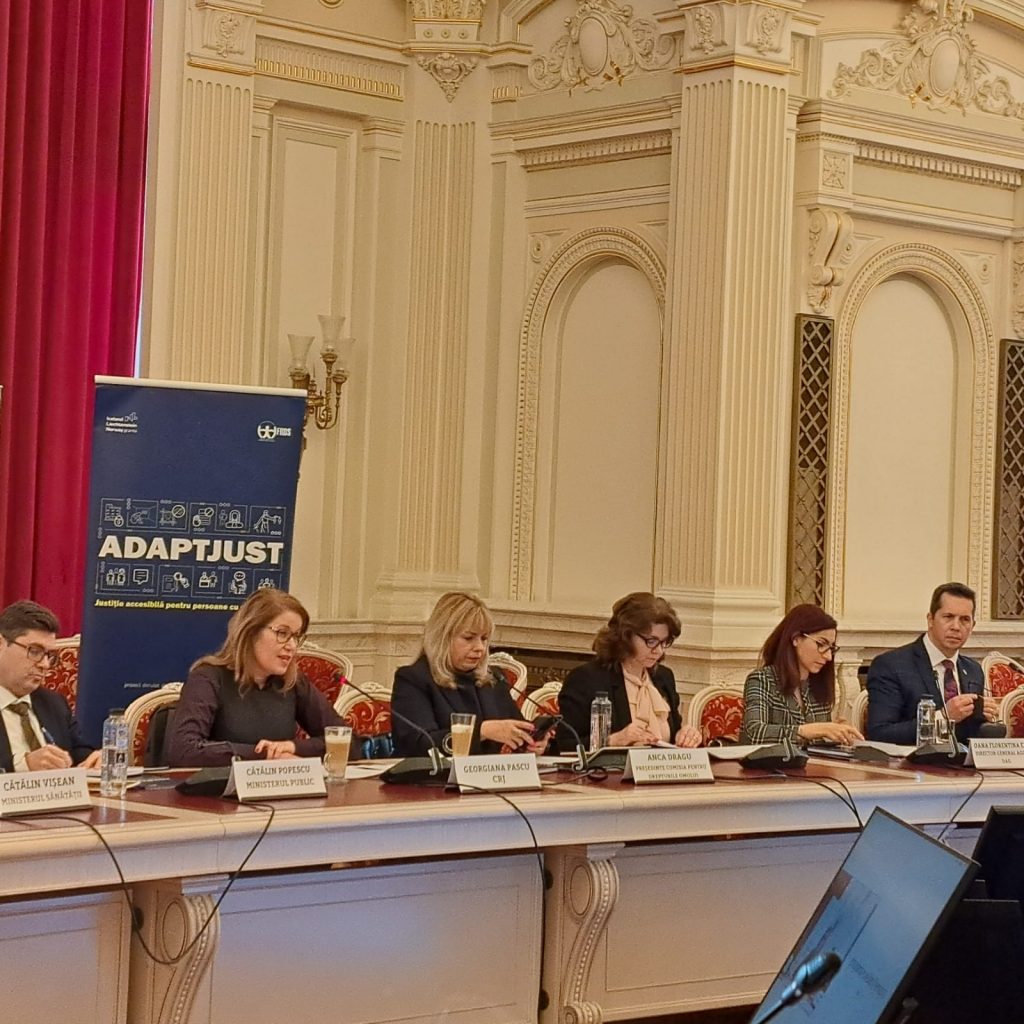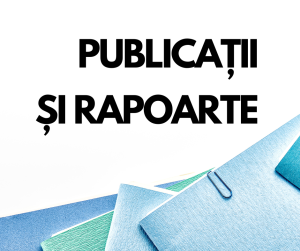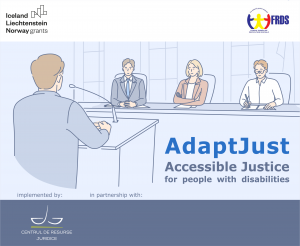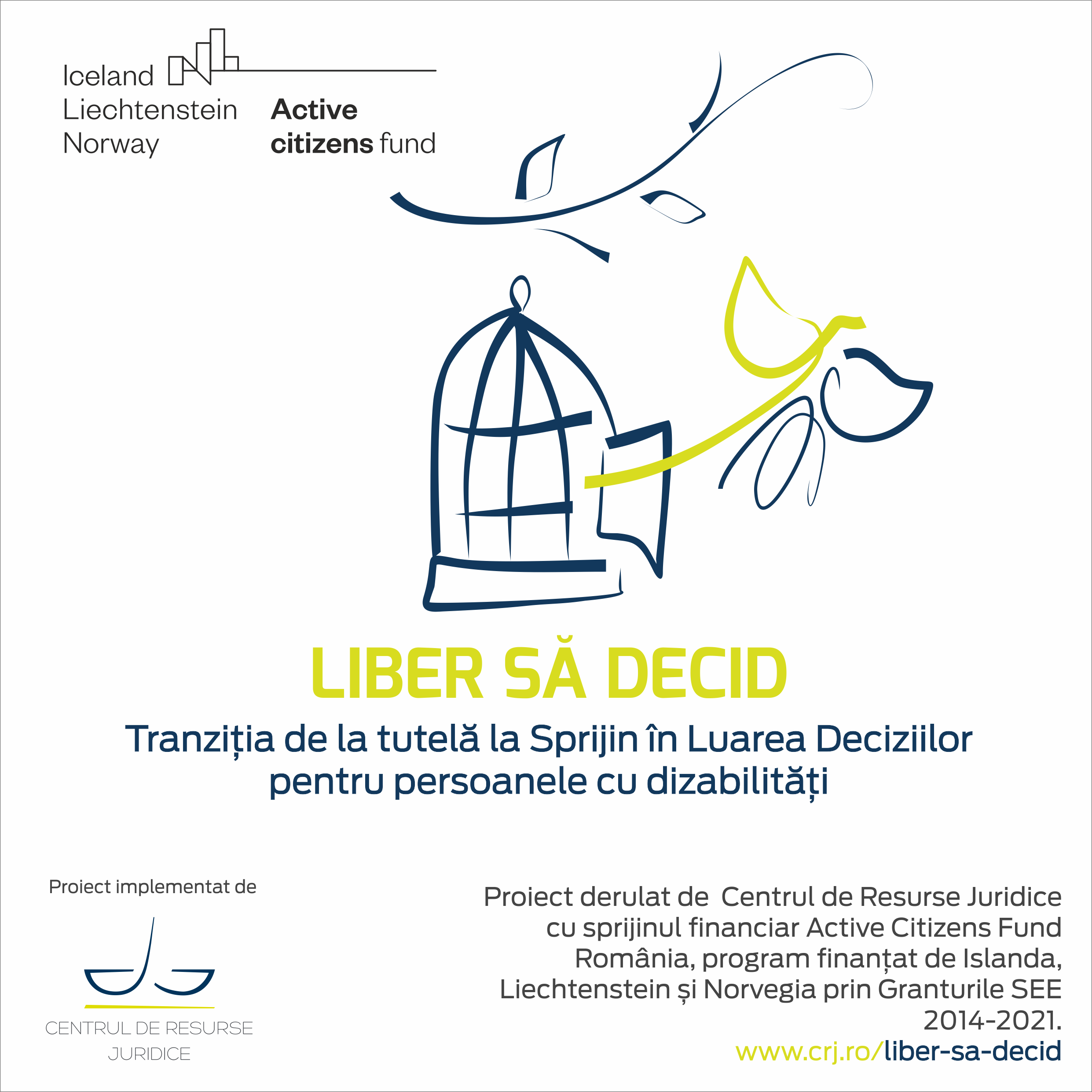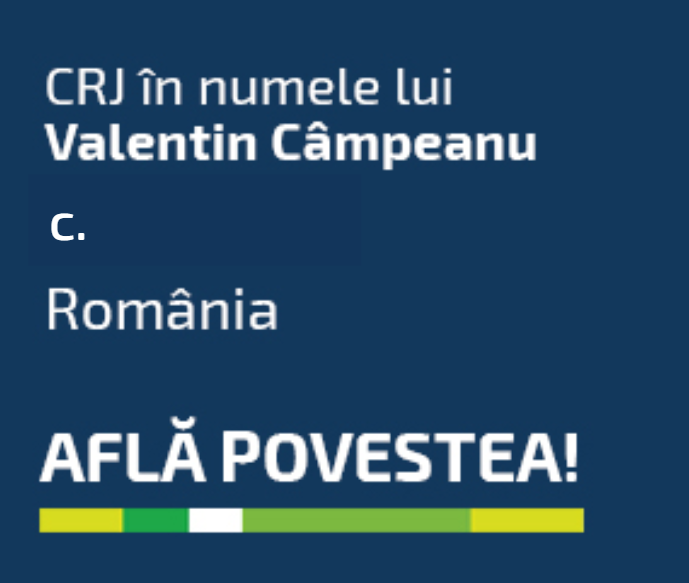The Centre for Legal Resources (CLR) and the Commission for Human Rights, Equal Opportunities, Cults and Minorities of the Romanian Senate organised on 12 December 2022 the national debate on the Government’s obligation to implement the ECHR rulings on the rights of persons with psychosocial and intellectual disabilities through the elaboration of the National Action Plan for the prevention of ill-treatment in psychiatric hospitals and residential centres.

The event was part of the AdaptJust – Accessible Justice for People with Disabilities project, run by the The Centre for Legal Resources, in partnership with the Public Prosecutor’s Office of the High Court of Cassation and Justice.
The event was opened by Ms Anca Dragu, Commission for Human Rights, Equal Opportunities, Cults and Minorities of the Romanian Senate, followed by Ms Georgiana Pascu, Programme Manager, Advocacy for Dignity, Centre for Legal Resources and Ms Maria Mădălina Turza, State Counsellor, Government of Romania, each focusing on the so far ignored ECHR decisions, Romania’s position in relation to the respect for the rights and dignity of persons with disabilities, the steps and responsibilities taken so far to implement the ECHR decisions.
In her opening speech, Georgiana Pascu spoke about the current situation in Romania regarding the dignity and respect for the rights of persons with disabilities, underlining the willingness of the Legal Resources Centre to collaborate, to make a common front with all the institutions pursuing the same goal:
In February 2004, following complaints and reports from the CRJ about the 100 people who died in Poiana Mare, and Valentin Câmpeanu, whom I saw before he died, plus the partnership with Amnesty International, the pressure on the European Commission, Romania adopted a memorandum allocating funds to hospitals. This meant increased salaries, the establishment of the CNSMLA, the training of specialists. Nonetheless, on every visit we receive messages from staff telling us that resources have been allocated, this has happened. We are on your side.
Georgiana Pascu, Advocacy for Dignity Programme Manager, Centre for Legal Resources
Mr. Cătălin Popescu, Deputy Prosecutor General PICCJ, Public Prosecutor’s Office, then spoke about the need for collaboration and the current situation of justice for people with disabilities in Romania, saying:
Our level of action is not where we want it to be and where it should be. Recognising a vulnerability is the first step to success and the right approach to an issue. People with intellectual and psychosocial disabilities are the most vulnerable – extreme vulnerability according to the ECHR, developed in the case of CRJ on behalf of Valentin Câmpeanu against Romania, the starting point of the Public Ministry’s actions in this matter. I was 100% in favour of the idea of partnership with civil society. Constructive criticism is beneficial and welcome. It is the main road to progress. Thank you CRJ for the fight you are leading. From behind the scenes we learn things that do us no credit as public institutions.
Cătălin Popescu, Deputy Prosecutor General PICCJ, Public Ministry
A word of encouragement was also conveyed to the participants by Ms. Mădălina Turza, State Counsellor, Government of Romania, who also mentioned the ECHR visit to Romania on the implementation of decisions in the field of mental health and disability:
You have taken on a difficult mission to break the ice in an area that has unfortunately been neglected for many years in Romania […] To strategically address the implementation of ECHR decisions in Romania, especially in the area of mental health and disability. […] I am pleased to announce today that, by decision of the Prime Minister of Romania, an Inter-institutional Working Committee will be set up as soon as possible at the level of the Prime Minister’s Chancellery, which will bring together representatives of all the ministries with responsibilities in this field, of the authorities, but also of civil society, so that together we can draw up an Action Plan with concrete measures, deadlines and those responsible for the implementation of the ECHR decisions in this field.
Mădălina Turza, State Counsellor, Government of Romania
Anca Dragu spoke about the importance of collaboration between civil society and Parliamentary Committees, both for reporting abuses and dysfunctional things in society, but also for finding real solutions:
Without this collaboration, the actual actions would not be possible, as there are over 100 ECHR decisions that Romania has ignored. Not once have the rights of people with psycho-social and intellectual disabilities been violated, which puts Romania in last place in the EU when it comes to implementing ECHR decisions. I want this to change and this action plan is a first step.
Mr Cătălin Vișean, Secretary of State, Ministry of Health, who spoke about where the solutions must come from, Mr Gabriel Diaconu, Psychiatrist, Honorary Advisor to the Minister of Health, about the complicity of the authorities and the need for accountability, Mr Emanuel Botnariu, from the Monitoring Council, continued, the session was closed by the speech of Mr Daniel Iovănescu, Deputy Ombudsman – National Field for the Prevention of Torture (MNP), with a series of clarifications on the results obtained from proactive and preventive monitoring, but also from the reactive investigations carried out, clarifications that have sparked future discussions.
These decisions are not punitive, their implementation is an invitation to transformation, and transformation means sanctioning misery and exiting complicity. If we are to succeed, to be able to say that the patient has sanity, dignity, voice, not only the right to protest, but also to be treated fairly and proportionately as a human being, to be able to provide adequate care to people… […] Mental health is something that we cannot do without. Opting out of complicity means better laws, better rules.
Gabriel Diaconu, psychiatrist, Honorary Advisor to the Minister of Health
The participants were divided into two working groups, in which problems and solutions were discussed in detail, to be debated after the speech of Mrs Iulia Motoc, Judge of the European Court of Human Rights, ECHR case law on the rights of persons with intellectual and psychosocial disabilities.
Finally, each group put forward proposals for a National Action Plan. Problems were identified such as: lack of professionals, absence of community services, absence of a protection mechanism, exhaustion of medical staff, lack of funding, risk of fraud, non-existence of community psychology:
When the patient goes out of the gate, the trail is lost. No protection, no family, no integration, nothing. That’s why the patient wanders off somewhere, does something, anything, an event, and is brought back by the police. If he does something criminal, he goes to safety, if not, he’s brought back to us. From the gate till he comes, he’s lost.
Dr. Andrian Țîbîrnă, Manager Hospital Prof. Dr. Alexandru Obregia
Romania has been condemned several times at the ECHR for the deficient way in which the justice system treats cases involving abuse of persons with intellectual and/or psychosocial disabilities, drawing the attention of the Romanian state to the actions it must continue to take to ensure an accessible and fair justice system for these persons.
The Legal Resources Centre has identified numerous cases of abuse during unannounced monitoring visits to residential centres and psychiatric hospitals in the country, and has taken legal action to ensure that the rights of people with intellectual and/or psychosocial disabilities are respected.
One of the reasons for this situation is also the lack of training and familiarity of the authorities in the system with the subject, concepts and tools that define an accessible justice system. In this regard, the CRJ and the Public Ministry – PICCJ organize through AdaptJust – Accessible Justice for Persons with Disabilities 20 training courses for judges, prosecutors, lawyers, psychologists, social workers and psychiatrists in order to facilitate the implementation of procedural adjustments and ensure access to justice for persons with disabilities.
So far, 220 people have participated in the AdaptJust – Accessible Justice for People with Disabilities courses: magistrates, lawyers, psychosocial specialists. Each course ended with a series of proposals made by them for the National Action Plan, summarised HERE (RO).
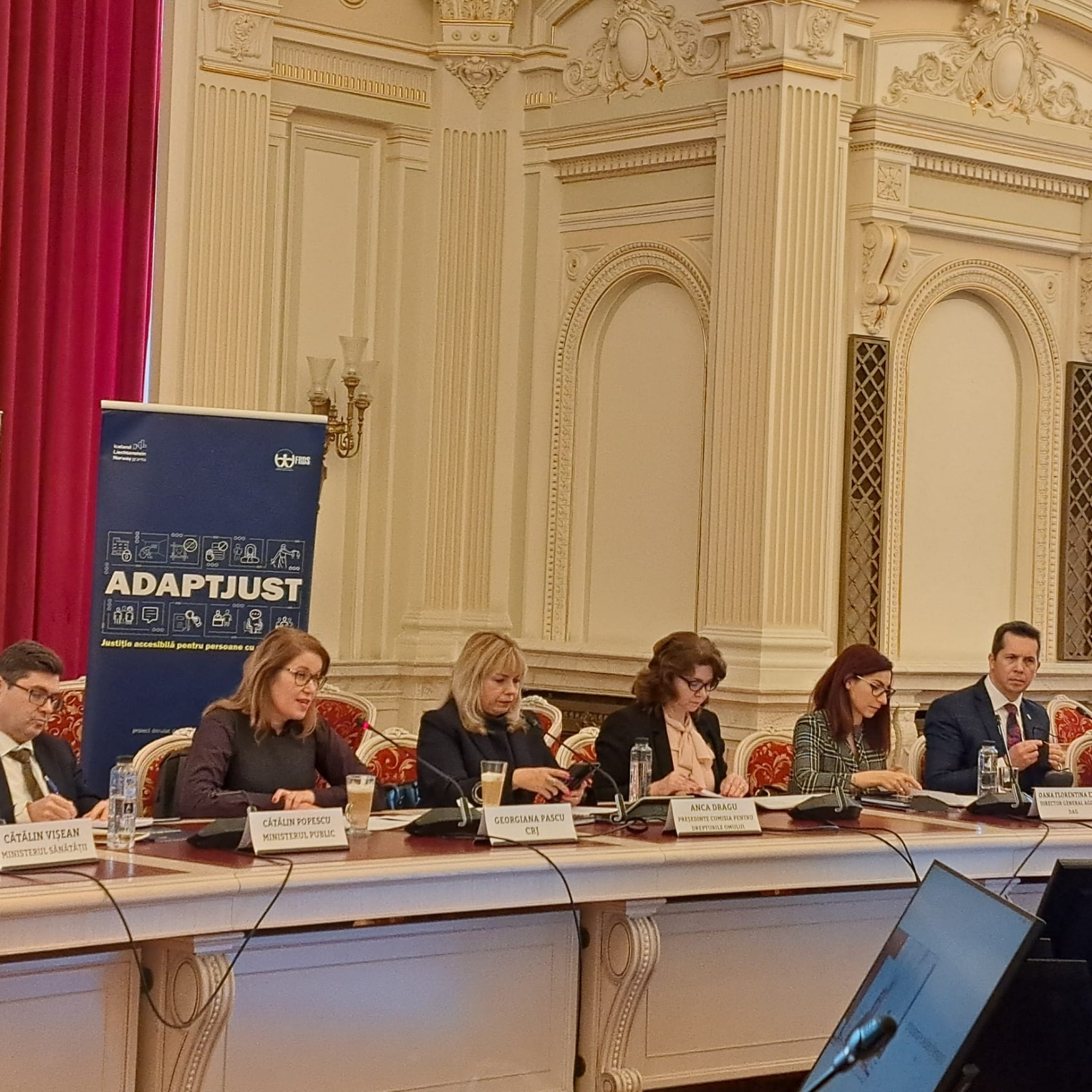
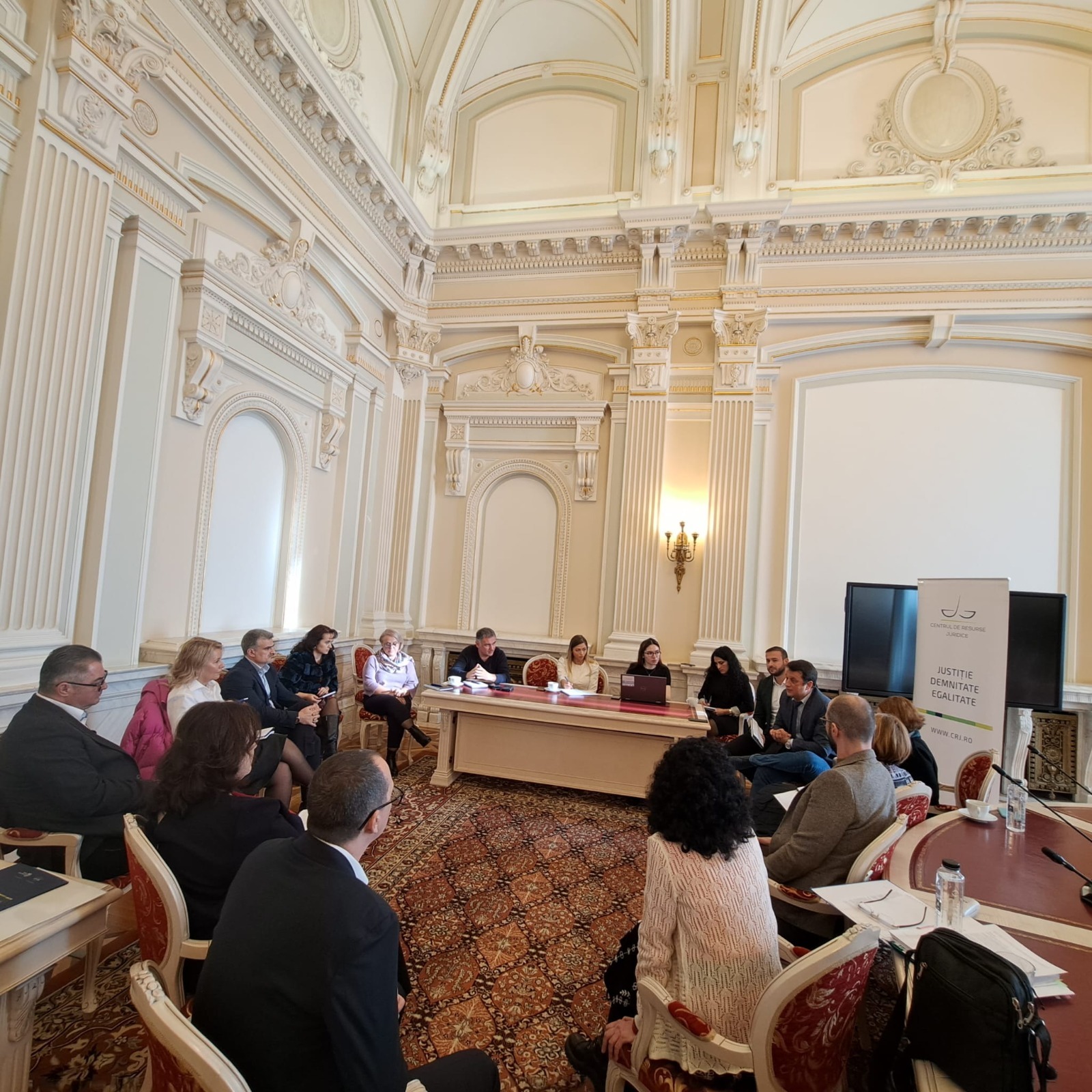
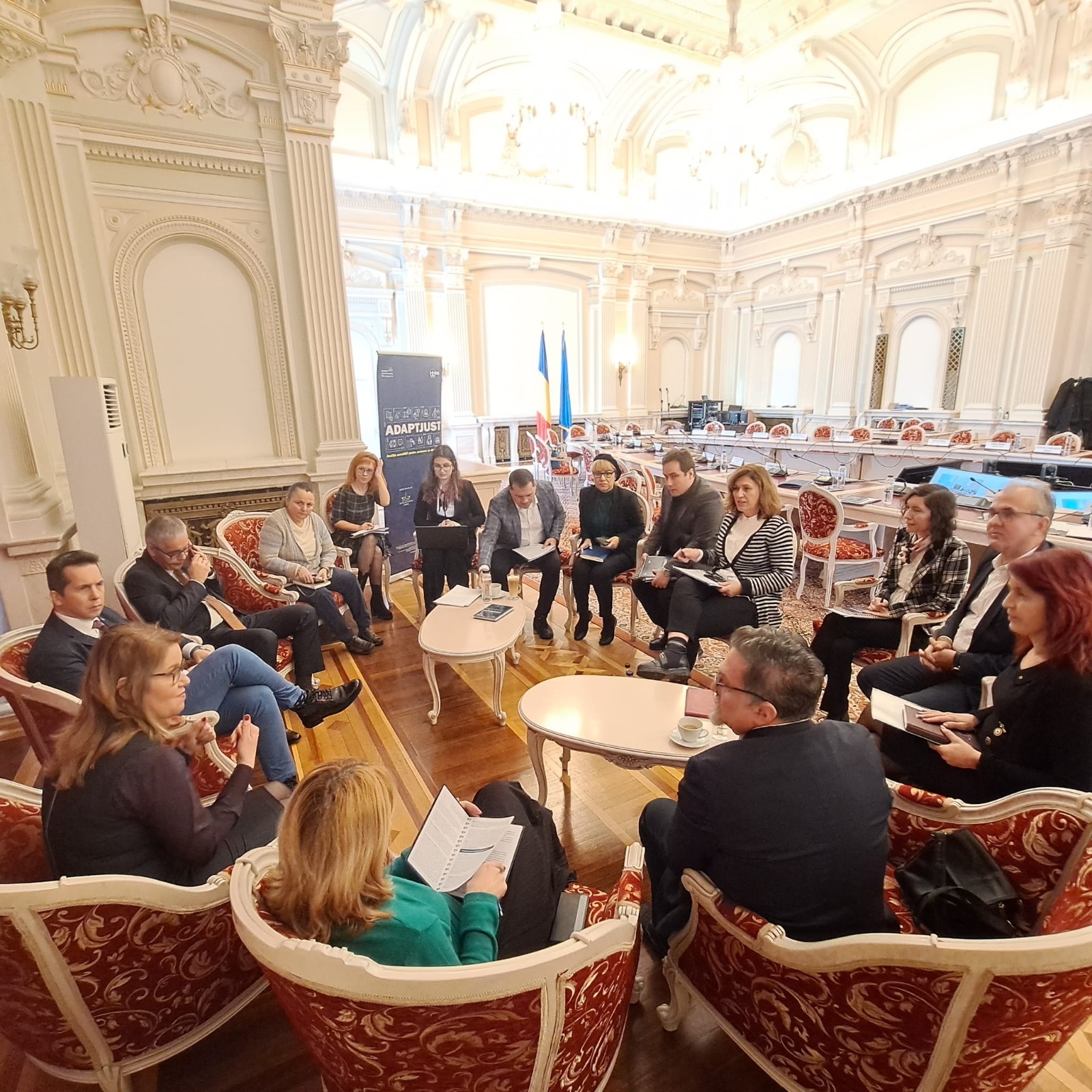
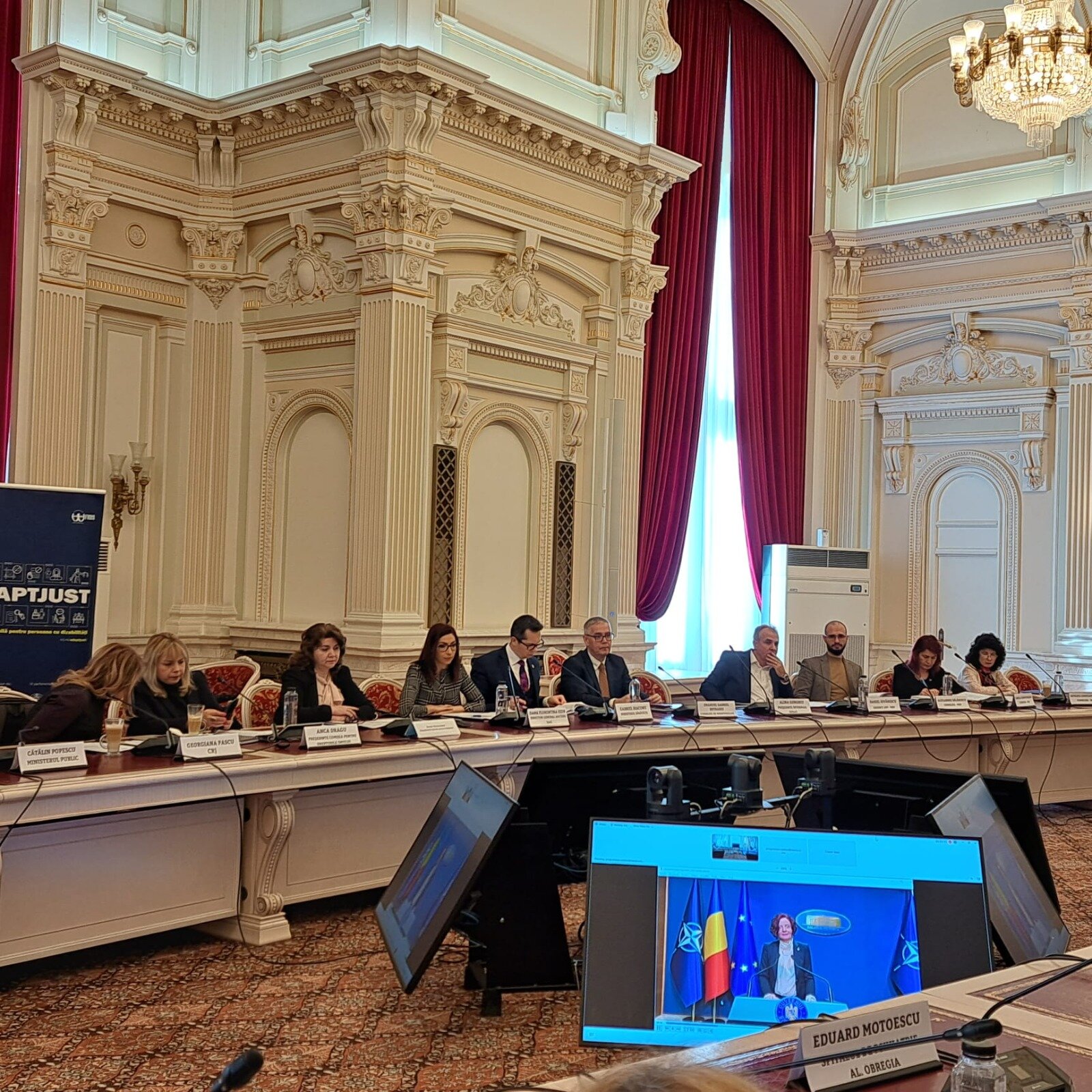
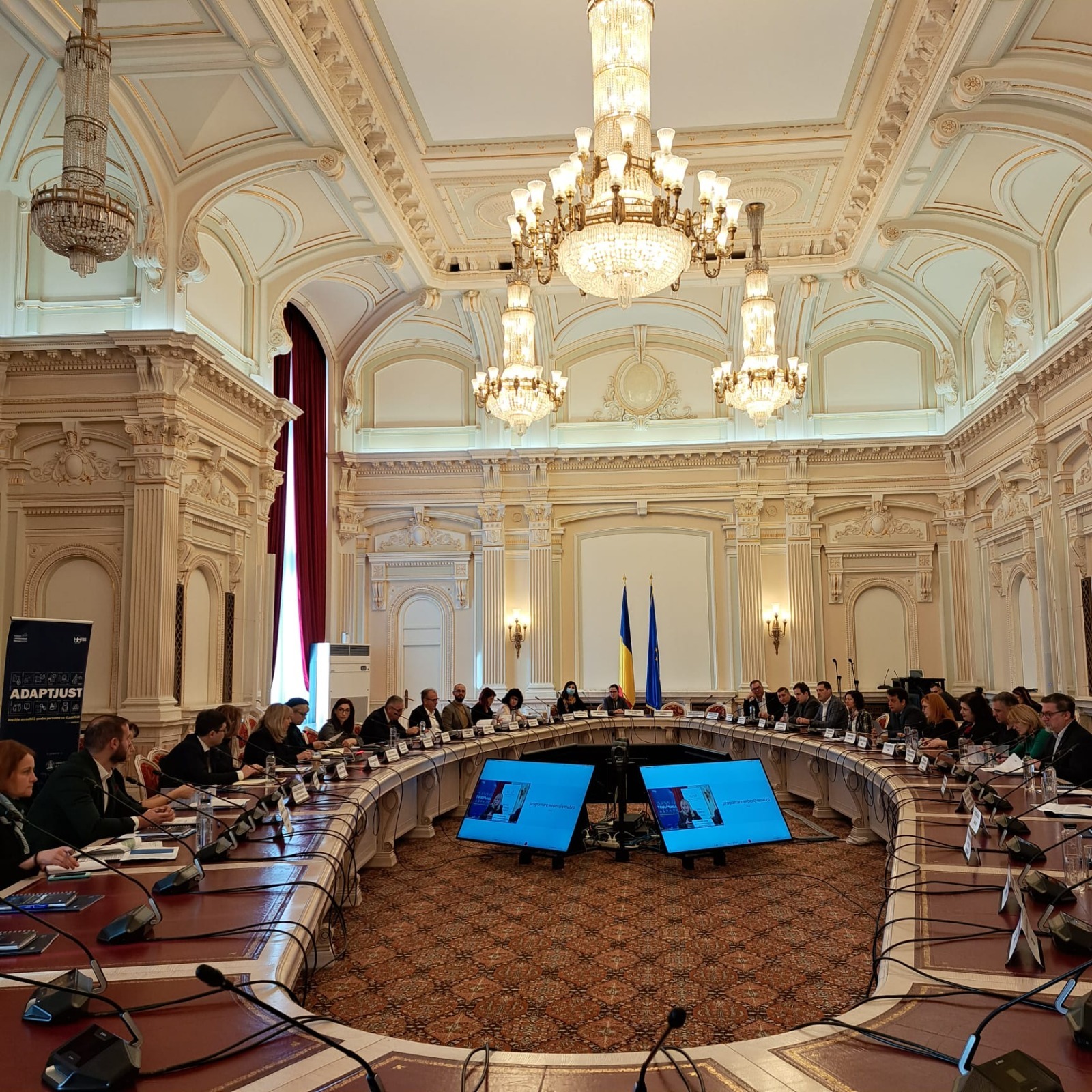
The project is implemented by the Centre for Legal Resources in partnership with the Public Ministry – Prosecutor’s Office of the High Court of Cassation and Justice and benefits from a grant of €1,324,994 offered by Iceland, Liechtenstein and Norway through EEA Grants under the Local Development Programme. The objective of the project is to facilitate access to justice for people with intellectual disabilities and/or mental health problems.
Project implemented with the financial support of EEA Grants 2014 – 2021. Its content (text, photos, video) does not reflect the official opinion of the Programme Operator, the National Contact Point or the Financial Mechanism Office. The information and opinions expressed are the sole responsibility of the author(s). For official information on EEA or Norwegian Grants, please visit www.eeagrants.ro.

